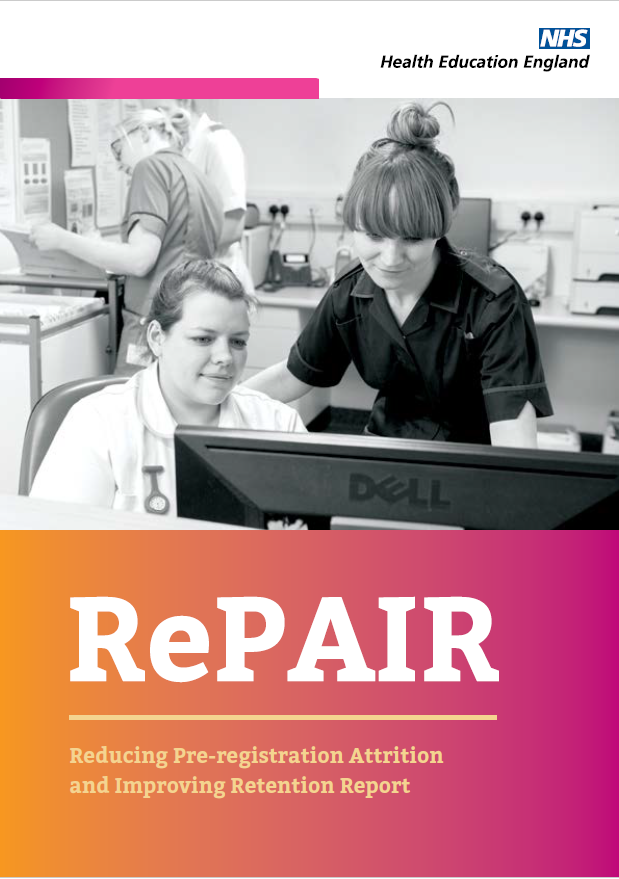You are here
Health Education England gains valuable insight into the reasons why students and post registration healthcare professionals leave
12 October 2018

HEE has been leading a key piece of work to gain a detailed understanding of the factors impacting on healthcare student attrition and to understand retention of the newly qualified workforce in the early stages of their careers.
The RePAIR (Reducing Attrition and Improving Retention) project covered the four fields in nursing (adult, child, learning disabilities and mental health) along with midwifery and therapeutic radiography and aimed to gain a better understanding of the student journey from pre-enrolment, up to two years post registration.
Some of the reasons for leaving the student journey without completing the course, or for only staying in the profession for less than two years after qualification were finances, workload, stress and personal reasons.
The report published today aims to help address some of the reasons given within the extensive student survey,
The recommendations include:
* Standardising how attrition is recorded and understood;
* Helping students understand in advance of starting their course, the challenges and demands of their chosen career and study;
* Support for all students on the course could be improved particularly in year 2;
* Standardising practice assessment documentation;
* Reviewing preceptorship programmes;
* Giving further consideration to enabling more prospective students to access hardship funds particularly mature students.
Alongside the report, a toolkit has been created specifically to help staff in higher education institutions; service provider organisations, and policy makers, reduce attrition with a range of learning materials, videos and examples of best practice.
Professor Dame Christine Beasley, Chairman of the RePAIR steering group, said:
Attrition has been under the spotlight for many years and whilst not all attrition should be considered negatively, unnecessary attrition does incur a significant cost to the health and care system – to universities and to healthcare providers and, importantly it impacts on the health and wellbeing of healthcare students and those who are newly-qualified.”
Professor John Clark, Regional Chief Nurse who led the RePAIR project at HEE added:
Attrition is everyone’s business. Every individual or organisation providing pre-registration healthcare education or contributing to clinical placement education must ask how they can work together with HEE to respond to the recommendations made in this report.”
Professor Lisa Bayliss-Pratt, Chief Nurse, HEE, and Interim Regional Directors for HEE London and South East, responded:
RePAIR has provided a unique and fascinating insight into what motivates students to stay or leave their chosen healthcare programme. It has been a catalyst for further work to explore some of the emerging themes including valuing Year 2 students, the culture of care, understanding student confidence and early career choices. I am particularly keen to understand the relevance of the findings to the new models of pre-registration education and training that are being implemented.”
The report and RePAIR toolkit was launched today with the report at an event run by Health Education England (HEE).